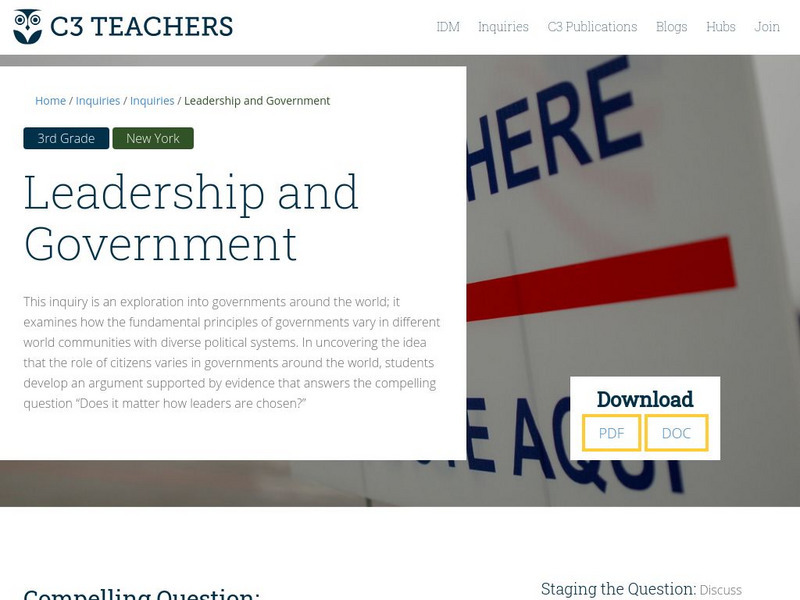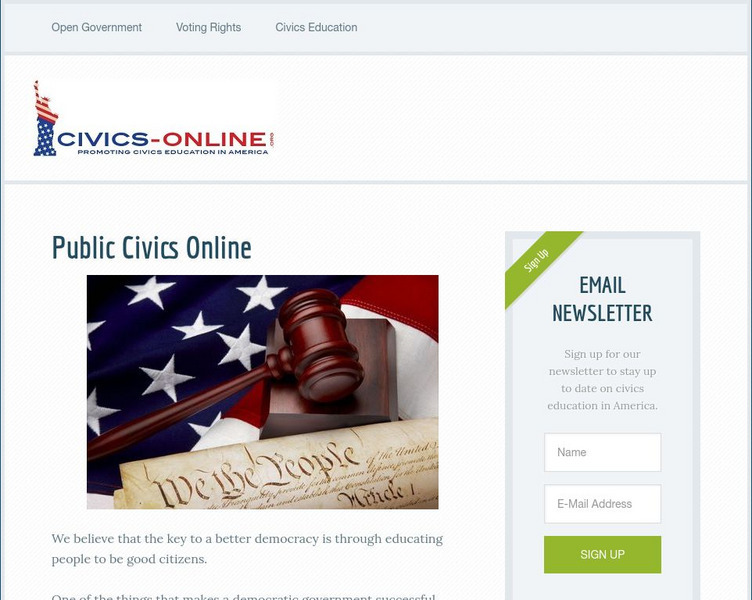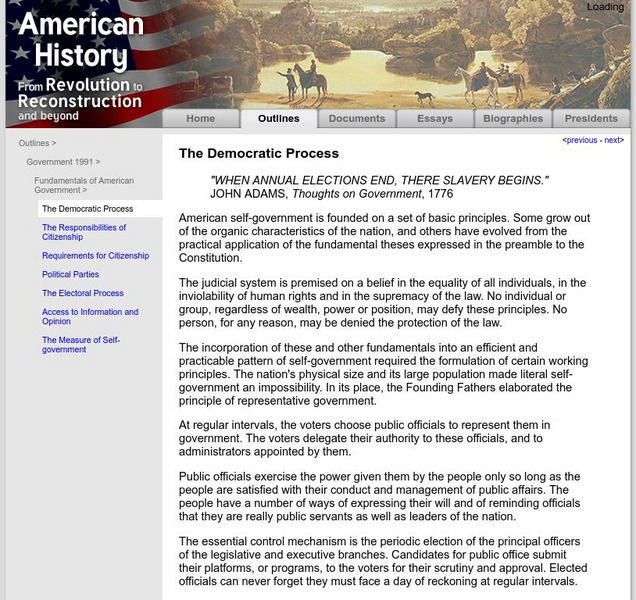US Department of Commerce
Apportionment: Grades 7-8
One person, one voice ... right? Using a simulation where uneven groups are given the same voice, scholars discover why fair apportionment based on an accurate census is important. Once finished, they use actual data to consider what...
Carolina K-12
Making First Vote Your Vote: Designing a Schoolwide Election
Encourage pupils to design an election plan for the entire school. They participate in a Board of Elections, create polling rules, discuss election controversies, write questions about the issues, run the election through an online...
School Improvement in Maryland
Dividing the Powers of Government
Who does what? To develop an understanding of the balance of power between the US federal and state governments, class members research responsibilities in terms of legal systems, security issues, economic activities, lawmaking, and...
Deliberating in a Democracy
Voting
Young scholars read about voting rights and compulsory voting in democracies. For this voting rights lesson plan, young scholars analyze the reasons for supporting and opposing compulsory voting and discuss whether compulsory voting is...
Other
Nelson / Thomson: Intro to Legislatures
This resource offers an extensive listing of the democratic legislatures in the world, describing their form and how they differ from other democratic legislatures. Uses popups.
US Department of State
America.gov: Government of the People: The Role of the Citizen
A chapter taken from the U.S. State Department's "Outline of U.S. Government," that focuses on the foundation of American representative democracy. Provides comparison with other democracies, along with the essential role of the U.S....
C3 Teachers
C3 Teachers: Inquiries: Leadership and Government
A comprehensive learning module on government and how countries get their leaders that includes three supporting questions accompanied by formative tasks and source materials, followed by a summative performance task. Topics covered...
Other
Civics Online: (Re)envisioning the Democratic Community
Civics Online offers teachers, students, and parents many excellent resources to enhance the learning of civics in the classroom and at home.
University of Maryland
Howard County Public School System: Foundations of American Government [Pdf]
How was the foundation of today's representative democracy established in early colonial America? Students will be able to source three documents and corroborate evidence to draw conclusions about the development of democratic ideas and...
The Newberry Library
Newberry Library: Dissent and Democracy in Modern American History
Learning resource in which students examine primary source material for a look at the forms of dissent in U.S. history and the role dissent plays in a representative democracy. Questions for consideration are included.
University of Groningen
American History: Outlines: The Democratic Process
Overview explaining some fundamental characteristics of the political processes of a representative democracy.
Wikimedia
Wikipedia: Democracy
A detailed Wikipedia resource on democracy that explains what it is, what the types of democracy are, and gives examples.
iCivics
I Civics: Who Represents Me?
Do you know who represents you in the federal, state and local government? Do you know how to get in touch with them? This web quest will guide you through a number of web resources that will give you information about your...
Other
Are We a Democracy or a Republic?
An essay on the present political state in America contending the country is leaning further towards a republican form of government instead of a democracy. Defines and explains the major differences between democracy and republicanism...
iCivics
I Civics: Cradle of Democracy Mini Lesson
No one person invented the kind of government that we have in the U.S. Check out two early governments that inspired the system that we have today: Athenian democracy, and the Roman Republic.
iCivics
I Civics: Lessons From Antiquity
Where did democracy get its start? In this lesson, students learn about direct democracy in Athen's and Rome's republic, how each took shape, and the ideas our Founders borrowed from these great civilizations.













